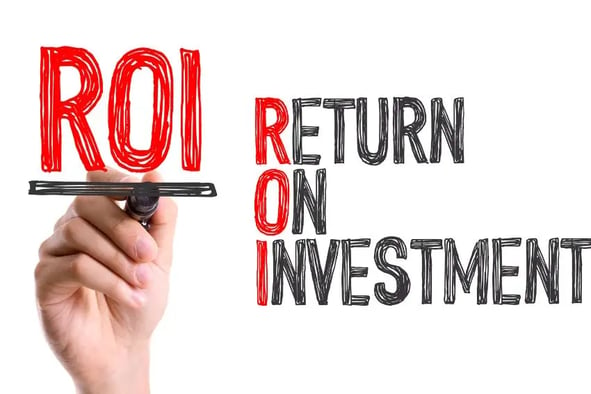
There are two basic ways you can increase the return on investment (ROI). You can find a winning strategy to increase your returns, and you can reduce the amount that is paid out of your funds. Market performance is unpredictable, but the costs of investing are knowable and within your control. Controlling the known variable of investment cost just makes sense. To keep your costs down, look carefully not only at the fees associated with your investments but also at the tax liability to which they expose you.
Actively Managed Funds vs. Indexed Funds
All else being equal, costs have a sizeable impact on a portfolio’s ROI. To illustrate, consider that an indexed fund starting with $100,000 in assets, costing .25% of assets per year and growing an average of 6% annually, will have nearly $100,000 greater value after 30 years as a comparable managed fund costing .9% of assets per year.
You can pay a fund manager to make investment decisions for you based on his or her (presumably) extensive knowledge of market performance. Many people are attracted to this type of fund because it makes sense to pay for expertise and a smart investment strategy. The costs of actively managed funds, however, are far higher, on average, than those associated with indexed funds (or “passively managed” funds). According to research by The Vanguard Group, the costs of indexed funds can be as little as 12% and generally not more than 40% as those of managed funds in the same asset class. Although active managers may indeed make more savvy investments, the costs of researching investments and the transaction fees associated with higher portfolio turnover tend cause active management to hurt a portfolio’s ROI more than it helps. The research also shows that overall, lower-cost funds consistently outperform higher-cost funds over time and across asset classes, despite the expert guidance of active managers (see graph below).
Tax Planning for Your Investments
Besides finding low-cost funds for your investments, you can also control costs through effective tax planning. Different types of investments carry different types of tax advantages and disadvantages. How investments and their returns will affect overall tax cost varies greatly from person to person, depending upon a variety of factors. It is strongly advisable to seek the guidance of a professional tax and investment consultant in order to optimize your strategy for limiting your taxable income on investments.
Boelman Shaw Tax & Financial Planning are experienced financial consultants providing knowledgeable, professional investment and tax advice to our clients. We understand that each client’s individual financial picture requires different investment and tax strategies. That is why we pride ourselves on creating a personal relationship with our clients so we can provide the best, most fully informed financial advice possible. Contact our Des Moines office to discuss how we can help you increase the cost-effectiveness of your investments.
Tax and accounting services provided through Boelman Shaw & Company, LLC. Advisory services provided through BSC Capital Partners, LLC a state of Iowa registered investment advisor.
